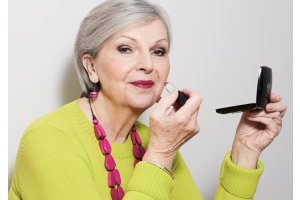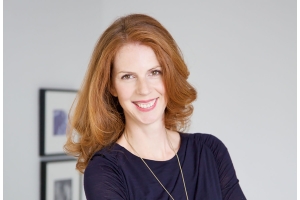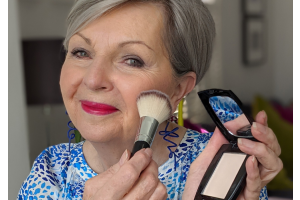
When I was clearing out my French house last year I came across a diary I kept during Anna, my oldest daughter’s first year of life, 1975. This entry on the 31st January has horrible resonance with today…
I wrote: “Left the baby with Stewart to quickly do week’s food shopping. Spent £8.31 on just basics in the supermarket. In the butchers I bought a little bit of meat - stewing steak and liver, and a joint for £1.18. Then I bought fruit for 80p. That’s over £10 and I only have enough for maybe 5 or 6 days. Where’s all this inflation going to end?” We can laugh at the ridiculously low prices in 1975 when a single cup of Starbucks coffee now costs around £3, but we can no longer laugh at living in an economy which is being hit by a tsunami of rising prices. So this week I thought I’d share with you what I have learnt about money and its management during my adult life, and why this becomes more rather than less important as we age.
Despite this early diary entry, my interest in our domestic economy was slow to develop because I left (what I saw as) all the boring stuff to my husband.
As a young mother and housewife in the 1970s I knew very little about matters financial. I understood that my ‘housekeeping money’ was buying less and less, but had no idea why that was. I was more than happy not to ‘worry my pretty little head’ about our finances which my husband felt were his responsibility to control and dictate. This sounds as though I minded, but I was more than happy to let him make all those decisions for our family. And as to the wider economy, that was even more impenetrable and, frankly, deeply uninteresting with a lot of old men (bankers and politicians) talking a lot of gobbledegook.
It was only when I eventually started to earn a proper salary at the age of thirty-eight, swiftly followed by a divorce at forty-two, that I started to wake up and smell that Starbucks coffee. I’d had my own bank account for years, but this just meant that I could decide if I had enough money to buy that fabulous pair of shoes I’d seen in Dolcis. And then I found myself on my own and confronted with total financial independence and control over every aspect of my life, including boring things like mortgages, the gas bill and whether I could possibly provide for my old age, given that the divorce settlement (at that time) didn’t include any share of my husband’s future private company pension. I wasn’t keen on the advice of one financial advisor post divorce who said “your only chance of a comfortable retirement is to marry someone with a good pension pot as soon as possible.”
Since then I have actively engaged with every aspect of finance, just in case George Clooney decided to look elsewhere. It was an extremely steep learning curve, especially as I failed maths ‘O’ level the first time I sat the exam at school, and have always seen myself as a dunce around numbers. My first challenge was negotiating a mortgage about 3 years after my divorce when I decided to move from a flat in Berkhamsted into a house in Chiswick in 1995. Should it be an interest only or a repayment mortgage? Fixed or variable rate? Could I afford the monthly payments and when would I be able to repay the debt? I subsequently bought and sold various properties, including one which I bid for at auction (my current flat). Thanks to property price inflation (which erodes debt) I am finally mortgage free.
I also had to decide what to do with an inheritance from my parents which came to me in 1997. At around the same time I had started my own training consultancy which meant that I had to file VAT returns and pay self-employment income tax on my earnings twice a year. Naturally I consulted advisors and accountants, but I was also determined to understand all the choices available to me and how to make the best decisions. For instance, I could have locked my inheritance into a pension fund. Instead I decided to buy a ruined property in France, had it rebuilt, enjoyed 24 years of pleasure, and then sold it for more than it cost me. In a pension fund, the money invested may have returned a similar sum but without all those endless summer days with my family and friends.
I hope that doesn’t all sound terribly smug. There was so much serendipity and luck in what has happened to me over the years financially, and I have been fortunate to be able to work hard at something I loved and for which I was paid well. The main thing that I learnt was to weigh up the risks and ask myself what fallback positions I had. As long as I had a safety net (or two) I’d take the leap and hope for the best. My last big risk was to invest some of the tax-free lump sum I’d received from my personal pension fund in order to start Look Fabulous Forever. The end of that story hasn’t been written, but so far, so good, although the current economic environment has some real challenges for any retail business like ours.
We are not the only ones heading into economic headwinds. With inflation again going in the direction it was when I was worried about food prices in 1975, everyone’s pocket will be hit. However, this time I know so much more about the wider economy, which I find interesting rather than boring, and I am in complete control of my own financial decisions. I was reminded of this whilst listening on Radio 4 this week to the writer Abi Morgan’s story (This is Not a Pity Memoir) of her husband Jacob’s devastating illness which put him in a coma for six months. In their relationship, just like mine pre-divorce, Jacob handled all the banking and household finances, so, in the middle of her distress, things at home start to unravel quite quickly, adding to her feelings of despair.
So, here are my thoughts about the essential considerations for every woman so that she can feel confident and in control of her financial situation. As Mr. Micawber so memorably said in Dickens's David Copperfield: “'Annual income 20 pounds, annual expenditure 19 [pounds] 19 [shillings] and six [pence], result, happiness. Annual income 20 pounds, annual expenditure 20 pounds ought and six, result misery.”The margin between the two is a very small one, but therein lies peace of mind.
Income
Do you know precisely what your income is every month and where it comes from? Is it fixed or variable according to circumstances (i.e. linked to certain economic measures like the triple locked state pension)? Fixed incomes obviously suffer most during periods of high inflation, but conversely savings rates improve as the Bank of England raises interest rates in order to encourage people to save more and spend less to reduce inflationary pressures. If you are on a pension then you can’t go on strike or ask for higher pay, but maybe there is latitude to manage your savings to get the best possible rate and protect the return with an ISA so that you don’t pay tax on that income. I intend to look closely at any economic levers our new P.M decides to pull in order to understand just how they will affect my income.
Outgoings
Do you know exactly what your fixed costs are every month? I have just been through all my outgoings with a fine tooth comb. Some I can do nothing about (like insurances - although I do shop around annually), but I have cancelled some subscription services (why was I paying £6 a month for Audible?) and am just about to upgrade my phone and negotiate a better deal as I use it relatively little. This is fairly minimal, but it’s worth doing these bank account health checks regularly so that you know where and when the money coming into your account is going out. The big problem at the moment is that our outgoings on energy (and food) are skyrocketing and we have no idea where they will end up or when they’ll start to go down again.
Energy Costs
We all know that disruptions to the supply of oil and gas are pushing up prices which is creating huge inflationary pressures. My monthly bill at my (brilliant) energy supplier Octopus has gone up from £68 to £184 per month. At the moment the government has promised all those like me who receive the £200 winter fuel allowance an extra £400, payable in October. That will help, but will be nowhere near enough if, as predicted, prices keep going up. In the meantime I am trying not to panic and have taken the advice of Octopus to adjust my boiler and reduce the temperature of my hot water and radiators down to their recommended levels (mine were sky high)*. I have also decided to have 3 draughty old sash windows replaced in September using some of the money from my French property sale to create improved insulation. Maybe I am being overly optimistic, but I believe that the government will be forced to step in with some major intervention to protect people from these astronomical increases. Again, I will be watching with interest in order to calculate the impact on my outgoings.
I have written this worrying that you might find it all patronising and blindingly obvious. If you already have total control and a complete grasp of all your household finances, then you’ll accuse me of teaching my grandmother to suck eggs. I have learnt the hard way that being an ostrich when it comes to money doesn’t work, nor does abdicating the responsibility to someone else who may not always be there. The only solution is to engage with the current financial reality, control what you can and then hope that those (boring but essential) men and women in grey suits do everything they can to help us all, whilst protecting those that need it most. And then count your blessings rather than your money. As it did last time, this too shall pass.
*The Energy Savings Trust has lots of good advice on measures like this to help you to save on energy use: https://energysavingtrust.org.uk/
Tricia x
Look Fabulous Forever do not own all of the images used in this blog. Please note that all images and copyrights belong to their original owners. No copyright infringement intended.












